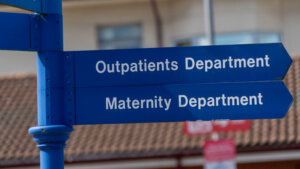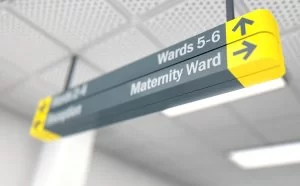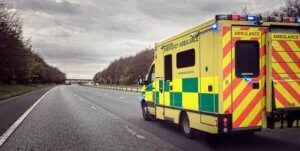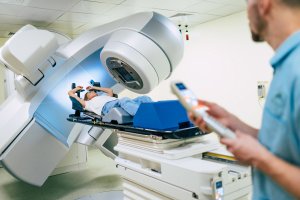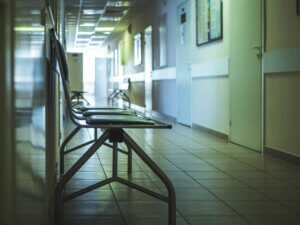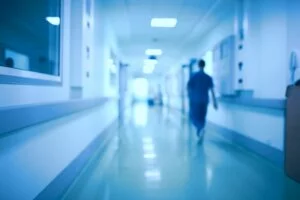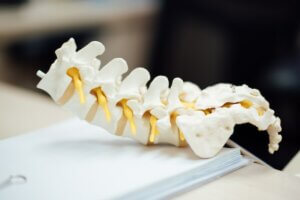How do I obtain my GP medical records or the GP medical records of a deceased relative?

Contact
Table of Contents
If you want to obtain copies of your medical records from your GP or the hospital where you have been treated you may apply for copies of these records. The General Data Protection Regulation (GDPR) which came into force by virtue of the Data Protection Act 2018, gives automatic access to your own medical records free of charge.
What information is contained in my GP Records?
Your GP records will include information about previous illnesses, medication that you are taking or that you have taken in the past, vaccinations, allergies and hospital discharge summaries, appointment letters and referral letters. They may also contain details of medical reports that have been carried out if copies of such reports have been sent to them. The GP records will also consist of computer-generated records detailing each and every appointment that has been made, blood test results and details of all medication that you have been prescribed. There will also be a summary care record which sets out a summary of all basic information about you unless you have opted not to have one of these.
Further, during the Covid-19 pandemic, there is apparently further information contained within your GP records which includes ‘significant medical history (past and present), reasons for medications, care plan information and vaccinations.’
If you are seeking copies of your GP records you will usually have to submit your request in writing to your GP practice. It is sensible to address your request for the attention of the Practice Manager at the GP Practice. No charge is made for supplying copies of the records and no information will be released to you unless you have provided consent for the release of the records. Some GP surgeries may ask you to collect the GP records in person and it is essential to take your ID with you on the collection of the records.
The records should be disclosed within 28 days in accordance with Data Protection Act 2018 which says ‘The applicable time period” means the period of 1 month or such longer period as may be specified in regulations, beginning with the relevant time’. If you received treatment and your records were updated during the 40 days before the date of your application, you should be given access to your medical records within 21 days.
Applying for a Deceased Relative’s Medical Records
You may want to obtain copies of your loved one’s records, if you feel that the care and treatment they received prior to their death was not of an acceptable standard. You may want to question why they were not diagnosed with the condition that caused their death e.g. cancer, sooner. If you obtain the records you may be in a position to seek answers to your concerns.
The rules relating to the disclosure of the records of someone else are different.
If you want access to such records you may apply in writing to the GP Practice Manager under the realms of the Access to Health Records Act 1990. This Act allows you to access such records if you are:
- A Personal Representative (ie the Executor or Administrator of the Deceased Person’s Estate)
- Someone who may have a claim resulting from the death (ie a relative or another person) – but in this circumstance only information directly relevant to a claim will be disclosed.
Who is a Personal Representative?
If the deceased made a will then the Personal Representative is the Executor of the will. If there is no will then the Personal Representative is the Administrator of the Estate of the deceased.
Who may have a Claim?
If the deceased died as a consequence of substandard medical care or in an accident that was someone else’s fault, then the deceased persons Estate (Executor or Administrator) or the dependants of the deceased may bring a claim within the Law Reform (Miscellaneous Provisions) Act 1934.
In addition, the Fatal Accidents Act 1976 allows ‘dependants’ of the deceased to bring a claim if they meet the criteria in the Act and are considered dependent on the deceased. This includes a spouse, a civil partner, children of the deceased or children who were treated as children of the deceased, parents of the deceased etc.
If you are not a Personal Representative of the deceased’s estate it becomes more difficult and you would have to explain to the record holder why you want copies of the deceased’s medical records and what you are concerned about in relation to the care that they received prior to their death. You may feel that there has been a contravention of the deceased’s rights under the Human Rights Act and you will have to set your concerns out in writing and send this to the record holder. You would have to show that you have a valid reason for requesting the record; that you have a legitimate relationship with the deceased and that access to the medical records of the deceased is in the public interest.
The deceased may have specifically asked that details relating to their illness are not disclosed to anyone and the record holder will have to consider this and the wishes of the deceased’s family.
If you are requesting the deceased’s GP records you should initially write to the Practice Manager at the GP surgery and they can then let you know if they still hold the deceased’s records. When someone dies the GP surgery sends the records to Primary Care Support England (PCSE) and if this has happened the Practice Manager should be about to provide you with the address so that you can write to PCSE directly for copies of the records.
If you are requesting the deceased’s hospital records you should be able to find the contact details for the person you need to write to on the NHS Trust’s website and you may be able to email the department directly.
If you are requesting records for the deceased from a private clinic or hospital you will have to write to the administration department and you may also need to write to the individual treating consultant as well. The deceased may already have been given x-rays; CT scans and test results prior to their death.
Again the time limits for disclosure are in accordance with DPA 2018 as referred to above.
To speak with Stephanie, or another member of the medical negligence claims team at Osbornes Law, please contact us on 020 7485 8811 or complete an Online Enquiry Form.
Stephanie Prior, Head of Clinical Negligence, Osbornes Law.
Share this article
“Small but very effective and experienced team so every client benefits from the personal touch but also highly skilled litigation know-how. Capability of the team means they can handle all aspects of very complex cases as well as straightforward matters.”
“Osbornes Law is an established firm which handles a breadth of complex and high-value clinical negligence matters.”
Contact us today
Call us 020 7485 8811
Email us Send us an email and we’ll get back to you
More from JodiVIEW ALL
- 12.5.2025
Complaints Against Suspended Surgeon Ms Kuldeep Stohr
Ms Kuldeep Stohr, orthopaedic surgeon at Addenbrooke’s Hospital suspended In February 2025, Cambridge University Hospitals NHS Foundation Trust (CUH) confirmed...
Read more - 6.5.2025
Six-Figure Settlement for Negligent C-Section Delivery
Osbornes secures a six-figure settlement following a negligent caesarean section delivery Jodi Newton, Partner and head of our Obstetric and...
Read more - 13.3.2025
Addenbrooke’s Hospital Complaints
Review finds harm to children by surgeon at Addenbrooke’s Hospital An independent review by Cambridge University Hospitals NHS Foundation...
Read more - 14.10.2024
Multi-Million Settlement in Cerebral Palsy Negligence Case
Judge awards multi-million settlement in cerebral palsy medical negligence claim Jodi Newton, Partner and specialist medical negligence lawyer at Osbornes...
Read more - 12.9.2024
Great Ormond Street Hospital Negligence & How to Claim
Review of negligence at Great Ormond Street Hospital At Osbornes Law, we’ve supported families through some of the most...
Read more - 29.8.2024
AB v Central London Community Healthcare NHS Trust
Background Our client, AB, had been using the Nexplanon contraceptive device for 6 years. She had a Nexplanon device inserted into...
Read more - 30.7.2024
What Is the Role Of a Physician Associate?
What does the Position of Physician Associate Mean for the NHS? There are many different jobs within the NHS, each...
Read more - 9.5.2024
Claim Against Royal Free London NHS Foundation Trust...
Client obtains settlement after being victim of a surgical negligence Jodi Newton, Partner in our Clinical Negligence department, recently settled...
Read more - 11.1.2024
New UK Supreme Court Ruling regarding Secondary Victims...
The Supreme Court has today, on the 11th January 2024, upheld the Court of Appeal’s order to dismiss the claims...
Read more - 11.1.2024
Secondary Victim Claims
Secondary victims in clinical negligence cases What is a secondary victim in clinical negligence cases? Most compensation claims are concerned...
Read more - 12.12.2023
NHS Compensation Payouts Guide
What Are NHS Compensation Payouts? In the UK, the National Health Service delivers the vast majority of healthcare services. When...
Read more - 21.9.2023
Large Compensation for Delayed Laryngeal Cancer Diagnosis
Actress receives financial award after life-changing missed cancer diagnosis. Jodi Newton acted for a client who was belatedly diagnosed with...
Read more - 21.9.2023
Delayed cervical cancer diagnosis client story
Introduction Jodi Newton acted for a woman who died following a delayed cervical cancer diagnosis. The deceased could have been...
Read more - 19.9.2023
Appendicitis Compensation Claim
Appendicitis misdiagnosis case settles for 5-figure sum Osbornes Law were instructed in a medical negligence claim against Bedfordshire Hospitals NHS...
Read more - 19.9.2023
Spinal Fracture Case Settles for 6-figure Sum
Spinal Fractures following cessation of Denosumab injection Case Overview Stephanie Prior was instructed in a spinal injury claim against Mid...
Read more - 31.8.2023
Can you sue the NHS for waiting times?
The NHS is facing an unprecedented challenge with 7.47 million people waiting for routine treatments. This crisis impacts everyone, from those...
Read more - 31.8.2023
Hyponatraemia – Symptoms, Causes & Negligence
What is hyponatraemia? Hyponatraemia is a condition where sodium levels fall below a certain level, which can be dangerous. All...
Read more - 10.8.2023
Ambulance Delays Affecting Rapid Patient Treatment
Failure to Meet Ambulance Response Targets In 2017, the Secretary of State for Health accepted the new ambulance performance standards recommended...
Read more - 1.8.2023
Bowel Ischaemia Fatality – Client Story
Jodi Newton, a Partner in the Clinical Negligence Department at Osbornes Law, has recently settled a long running fatal medical...
Read more - 26.7.2023
Private Healthcare Negligence
Can you claim medical negligence against a private hospital? Yes – it can be a little more complicated than bringing a...
Read more - 9.6.2023
Early Notification Scheme – is it helping or failing...
What is the Early Notification Scheme? The NHS Early Notification Scheme (“ENS”) has reached its sixth anniversary. Established in April 2017,...
Read more - 23.3.2023
Private Pregnancy Scans and Substandard Care
In the news, it has been reported that private clinics that offer pregnancy scans to women are not meeting the...
Read more - 9.2.2023
Perineal tear claim settles for 6-figure sum
Successful claim for mother with third-degree perineal tear Osbornes Law recently settled a birth injury claim for a woman who...
Read more - 14.12.2022
Successful settlement for negligent care during kidney transplant...
Claimant v Royal Free London NHS Trust Osbornes have reached a settlement agreement on behalf of a Claimant who brought...
Read more




